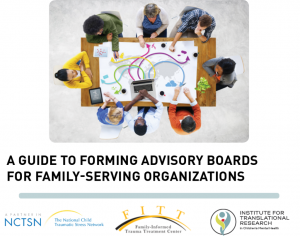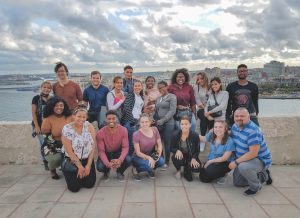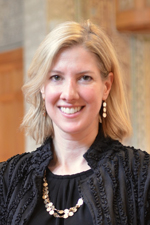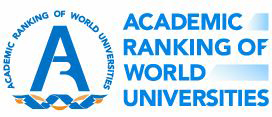A new study shows that successful implementation of preschool-to-third-grade programs yields benefits in increasing school readiness, improving attendance, and strengthening parental involvement in school education—strategies that can close the achievement gap for children at risk.
“Scaling and sustaining effective early childhood programs through school–family–university collaboration” was published in the September/October 2017 issue of Child Development by Arthur Reynolds, professor of child development, and colleagues in the Human Capital Research Collaborative (HCRC).
The Child–Parent Center Preschool to Third Grade program (CPC P–3) is a collaborative school reform model designed to improve school achievement and family engagement from ages three to nine. The program provides small classes, intensive learning experiences, menu-based parent involvement, and professional development in co-located sites. In the study, investigators evaluated evidence from two longitudinal studies, the Chicago Longitudinal Study, begun in the 1980s, and Midwest CPC, which started in Minnesota and Illinois in 2012.
“We found that organizing preschool to third grade services through partnerships with schools and families creates a strong learning environment for ensuring that early childhood gains are sustained, thus reducing the achievement gap,” said Reynolds, HCRC co-director.
Implementation in five Saint Paul Public Schools serving high proportions of dual language learners led to gains in literacy of nearly a half a year at the end of preschool. The gains were sustained in kindergarten with further evidence of increased parent involvement and attendance. Small classes and engaged instruction contributed to these gains.
“Thanks to the support of the CPC P-3 program, family rooms at the five Saint Paul Public School sites are vibrant and welcoming environments,” said Kathleen Wilcox-Harris, chief academic officer of the Saint Paul Public School District. “It is not uncommon to see a hub of activity in these spaces promoting the bridge between the home, community, and school environments. The program with guidance from HCRC has led to a menu of family engagement opportunities known as the Families First Menu of Opportunities that is being implemented at other sites. The small classes and preschool to third grade alignment of instruction has also been of substantial benefit.”
In collaboration with Saint Paul Public Schools and other implementation sites, guiding principles of the effectiveness of program expansion are shared ownership, committed resources, and progress monitoring for improvement. The addition of Pay for Success financing in the Chicago Public School District shows the feasibility of scaling CPC P-3 while continuing to improve effectiveness. Each dollar invested in the CPC P-3 program has demonstrated a return of $10 in reduced need for remedial services and improved well-being.
Findings from the study support increased investment during the early grades. As Reynolds documented in a recent Education Week commentary, spending on early childhood development in the first decade of life is a smart investment.
“Since only about half of young children are enrolled in public preK programs, and less than 10 percent participate in P–3 programs that follow the key principles of CPC, increased access to high-quality education and family support services can make a big difference in reducing the achievement gap,” Reynolds said. “Nationally, only one third of fourth graders read proficiently on national assessments, and preschool or school-age programs alone are not enough to raise these rates to acceptable levels, especially for the most vulnerable children. CPC not only helps children be school ready, but improves reading and math proficiency over the school grades, which led to higher rates of graduation and ultimately greater economic well-being.”
Human Capital Research Collaborative, an interdisciplinary research institute in the Institute of Child Development, College of Education and Human Development, offers a multitude of resources for CPC P-3 implementation, including monitoring tools, manuals, and extensive resources on the website CPCP3.org.
Funding for the study is from the National Institute of Child Health and Human Development, U. S. Department of Education, and the Bill & Melinda Gates Foundation.
 Megan Gunnar, Ph.D., director of the Institute of Child Development — the #1 program in developmental psychology in the nation — is an expert on how children and adolescents regulate stress and emotions. In response to the recent reports on the U.S. government policy separating children of immigrants trying to enter the U.S. illegally, Dr. Gunnar is speaking out, and she is getting worldwide attention. This forced separation can have a negative developmental impact on children far into their future, according to Dr. Gunnar.
Megan Gunnar, Ph.D., director of the Institute of Child Development — the #1 program in developmental psychology in the nation — is an expert on how children and adolescents regulate stress and emotions. In response to the recent reports on the U.S. government policy separating children of immigrants trying to enter the U.S. illegally, Dr. Gunnar is speaking out, and she is getting worldwide attention. This forced separation can have a negative developmental impact on children far into their future, according to Dr. Gunnar.

 Dr. Dempsey is a postdoctoral researcher in the Department of Statistics at Harvard University interested in developing and analyzing methods for joint modeling of longitudinal and time-to-event data.
Dr. Dempsey is a postdoctoral researcher in the Department of Statistics at Harvard University interested in developing and analyzing methods for joint modeling of longitudinal and time-to-event data.









 Dr. Forgatch and her life partner, Minnesota-native Dr. Gerald Patterson, developed PMTO based on analysis of thousands of hours of footage documenting parent-child interactions to understand what leads children astray. PMTO is based on 40 years of research and has been shared with more than 50,000 families from all socioeconomic backgrounds, cultures, and family types throughout the world. It has been adapted by other researchers to serve more specific audiences, including military parents, Latinx immigrants, and parents of traumatized children. Dr. Forgatch is Senior Scientist Emerita at Oregon Social Learning Center and founder of Implementation Sciences International, Inc.
Dr. Forgatch and her life partner, Minnesota-native Dr. Gerald Patterson, developed PMTO based on analysis of thousands of hours of footage documenting parent-child interactions to understand what leads children astray. PMTO is based on 40 years of research and has been shared with more than 50,000 families from all socioeconomic backgrounds, cultures, and family types throughout the world. It has been adapted by other researchers to serve more specific audiences, including military parents, Latinx immigrants, and parents of traumatized children. Dr. Forgatch is Senior Scientist Emerita at Oregon Social Learning Center and founder of Implementation Sciences International, Inc.
 Dr. BraVada Garrett-Akinsanya, a licensed clinical psychologist and Executive Director of the African American Child Wellness Institute, will present on an innovative culturally-specific parenting program she is involved in. The program, called Project Murua: A Pre-meditated Parenting Boot Camp, is a 10-week intensive Afrocentric violence prevention and wellness promotion parent education and training program.
Dr. BraVada Garrett-Akinsanya, a licensed clinical psychologist and Executive Director of the African American Child Wellness Institute, will present on an innovative culturally-specific parenting program she is involved in. The program, called Project Murua: A Pre-meditated Parenting Boot Camp, is a 10-week intensive Afrocentric violence prevention and wellness promotion parent education and training program.